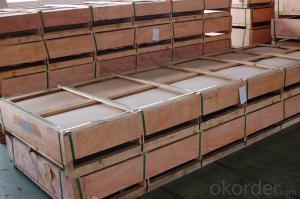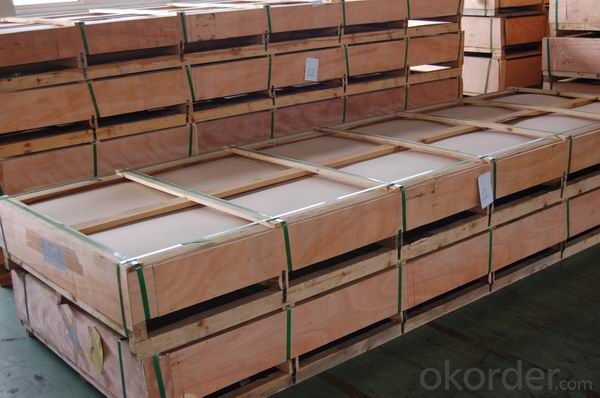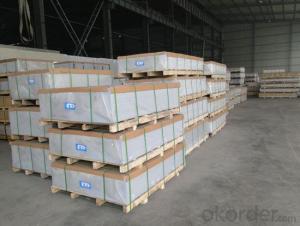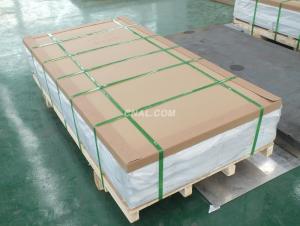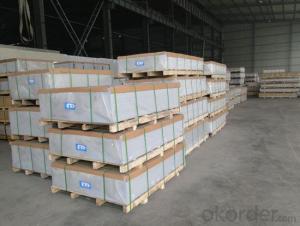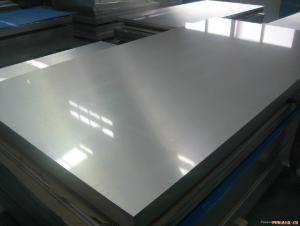Decorative Aluminum Sheets AA8006 for Construction
- Loading Port:
- Shanghai
- Payment Terms:
- TT or LC
- Min Order Qty:
- 8 m.t.
- Supply Capability:
- 10000 m.t./month
OKorder Service Pledge
OKorder Financial Service
You Might Also Like
1.Structure of Aluminum Sheets AA8006 Used for Construction Description
Aluminum coils color coated are of a wide range of colors, which give wonderful appearance no matter in residential and commercial constructions or great exhibition centers.
Aluminum coils color coated have been high weather resistance \anti scratch anticorrosion \ subtle edges and elegant appearance \ easy processing and installation\ high brightness and hardness.
2.Main Features of Aluminum Sheets AA8006 Used for Construction
• Superior quality of raw material
• Reasonable and stable chemical composition
• Goode mechanical property
3.Aluminum Sheets AA8006 Used for Construction Images
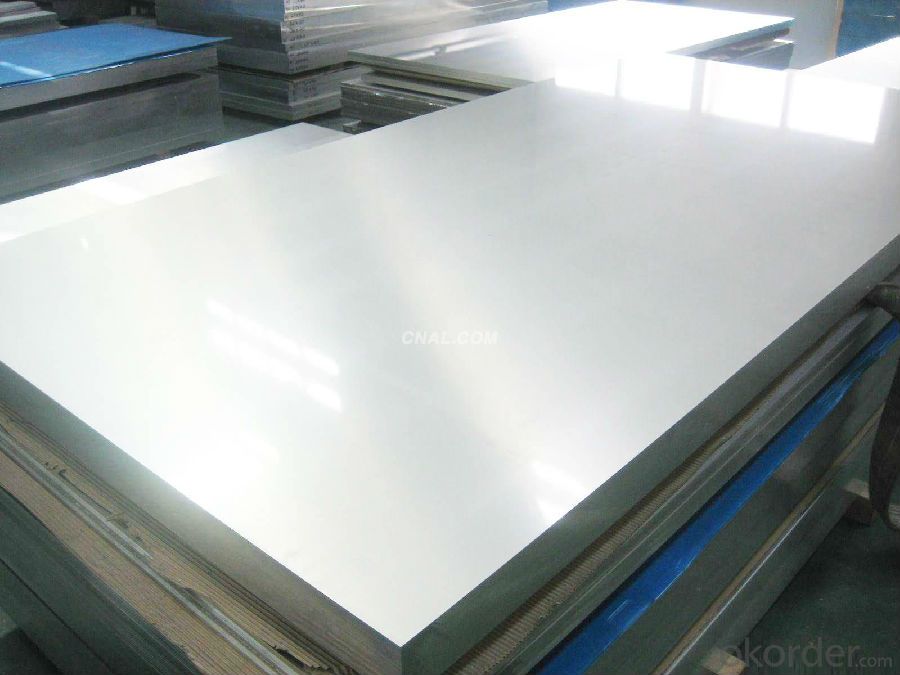
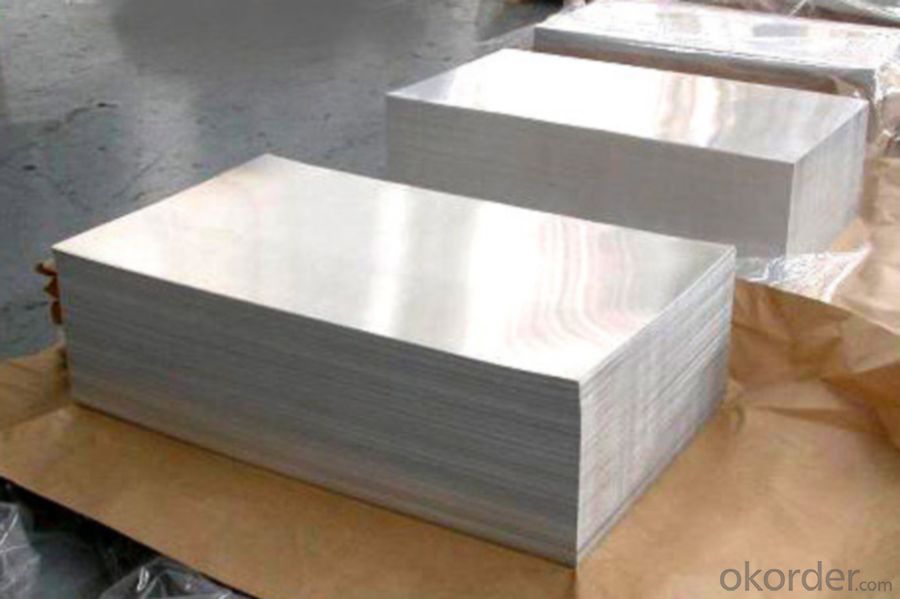
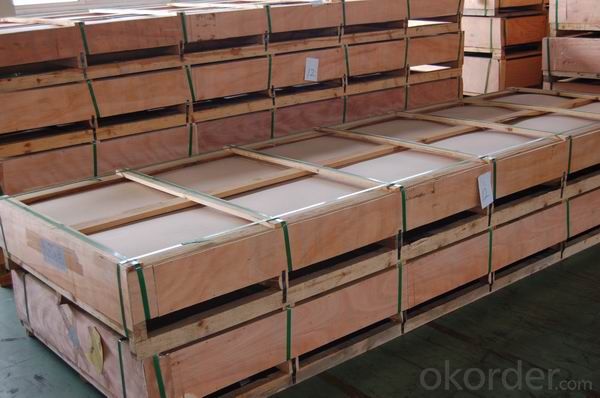
4.Aluminum Sheets AA8006 Used for Construction Specification
Alloy | AA8006 |
Temper | H14, H16, H18, O/F |
Thickness | 0.2mm -- 100mm |
Width | 30mm -- 1700mm |
Standard | GB/T 3880-2006,EN,ASTM,JIS |
5. FAQ of Aluminum Sheets AA8006 Used for Construction
A.How to guarantee the quality?
Customers are welcome to our mill to visit and check the products. Besides, we can arrange a third party to test Aluminum Sheets AA8006 Used for Construction.
B.When will you deliver the products?
Aluminum Sheets AA8006 Used for Construction will be delivered within 35 days after receiving advanced payment or original L/C.
C. What is the delivery time?
About 25-30 days after receiving the deposit or original L/C.
- Q: write a balanced equation for the reaction between aluminium metal and potassium hydroxide in water
- Hi there! So you're given Aluminum metal, which has the oxidation state (almost always) of 3+. In play are: Al 3+ K+ OH- You have KOH(aq) + Al 3+ and they react to form a precipitate, creating Al(OH)3 and the potassium cation disperses into solution. In traditional symbols: 3 KOH (aq) + Al 3+(s) ----- Al(OH)3(s) + 3K+ (aq) That's 3 K+, 3 OH-, and 1 Al 3+. That carries for both sides! NIE would look like: 3 OH- + Al 3+ ----- Al(OH)3 (s) Most instructors don't mind if you leave off (aq) but pretty much all of them care about (s), so make sure you add those phase states! I hope I helped :)
- Q: What are the weight and density of aluminum sheets?
- The weight and density of aluminum sheets depend on their thickness and dimensions. However, generally speaking, the density of aluminum is approximately 2.7 grams per cubic centimeter (g/cm³) or 2700 kilograms per cubic meter (kg/m³). As for the weight, it can be calculated by multiplying the density by the volume of the aluminum sheet. For example, if you have a sheet of aluminum that is 1 meter by 1 meter and 1 millimeter thick, the volume would be 0.001 cubic meters (1 meter x 1 meter x 0.001 meter). Multiplying this volume by the density of aluminum, you would find that the weight of the sheet is 2.7 kilograms (0.001 cubic meters x 2700 kg/m³). Remember that these values can vary depending on the exact dimensions and thickness of the aluminum sheet in question.
- Q: What are the different methods of finishing aluminum sheet edges?
- Depending on the desired outcome and application, there are multiple techniques available to finish aluminum sheet edges. One option is deburring, which involves removing sharp or rough edges from the aluminum sheet. This can be accomplished with tools like files, sandpaper, or specialized deburring machines. Deburring not only enhances the appearance of the edges but also helps prevent potential injuries or accidents caused by sharp edges. Another method is chamfering, where a beveled edge is created on the aluminum sheet. This can be done using chamfering tools or by carefully filing or sanding the edges at a specific angle. Chamfering is often performed to improve the aesthetics of the aluminum sheet and make it easier to handle and assemble. Additionally, edge rounding is a technique that involves smoothing the edges of the aluminum sheet to give them a rounded or curved profile. Sanders, grinders, or specialized edge rounding machines can be used for this purpose. Edge rounding not only enhances the visual appeal of the aluminum sheet but also reduces the risk of injury from sharp edges. Moreover, anodizing is a widely used finishing method for aluminum sheet edges. It involves creating a protective oxide layer on the aluminum surface through an electrochemical process. Anodizing not only improves the corrosion resistance of the aluminum but also offers a range of color options for the edges, allowing for customization and improved aesthetics. Lastly, powder coating is another viable method for finishing aluminum sheet edges. It entails applying a dry powder onto the aluminum surface and then heating it to create a durable and decorative finish. Powder coating provides a wide variety of colors, textures, and finishes, allowing for customization and enhanced visual appeal. In conclusion, the choice of finishing method for aluminum sheet edges depends on factors such as the desired appearance, functionality, and application requirements. It is crucial to consider these factors and seek expert advice to determine the most suitable method for a specific project.
- Q: What are the different methods of surface treatment for aluminum sheets?
- Aluminum sheets can undergo various surface treatment methods, each with its own purpose and desired outcome. Popular methods include anodizing, chromate conversion coating, painting, and powder coating. Anodizing is commonly used to enhance the corrosion resistance and durability of aluminum sheets. This involves immersing the sheets in an electrolytic bath and applying an electric current to create a controlled oxide layer on the surface. The result is a protective and decorative coating that can be colored or sealed. Chromate conversion coating, also known as chemical conversion coating or chromating, applies a thin layer of chromate to the aluminum sheets. This method provides excellent corrosion resistance and improves paint adhesion. The coatings can be clear or have a yellowish or iridescent appearance. Painting is a widely used method to protect aluminum sheets and improve their visual appeal. Sheets are typically pre-treated with a primer to enhance adhesion, followed by the application of a topcoat for protection and color. Painted aluminum sheets come in a wide range of colors and finishes, suitable for various applications. Powder coating is an environmentally friendly and durable surface treatment for aluminum sheets. It involves electrostatically applying a dry powder onto the sheets, which is then cured in an oven. The powder melts and fuses to form a tough and attractive coating. Powder coating offers excellent resistance to corrosion, chemicals, and UV radiation. In addition to these methods, other techniques like polishing, buffing, and mechanical finishes can be employed to achieve specific desired appearances or surface qualities. Ultimately, the choice of surface treatment method for aluminum sheets depends on factors such as desired corrosion resistance, aesthetic requirements, environmental considerations, and the intended application of the sheets.
- Q: How do you prevent warping of aluminum sheets during machining?
- One way to prevent warping of aluminum sheets during machining is by using proper coolant or lubricants during the machining process. This helps in reducing the friction and heat generated, which can cause warping. Additionally, maintaining correct cutting speeds and feeds, as well as ensuring proper tool selection and machining techniques, can also help minimize the chances of warping.
- Q: Are aluminum sheets suitable for construction applications?
- Yes, aluminum sheets are suitable for construction applications. Aluminum is a lightweight and durable material that is corrosion-resistant, making it ideal for various construction projects. It is commonly used for roofing, siding, and wall cladding, as well as in structural applications like beams and columns. Additionally, aluminum sheets offer excellent thermal and electrical conductivity, further enhancing their suitability for construction purposes.
- Q: Can aluminum sheet be used for aerospace applications?
- Yes, aluminum sheet can be used for aerospace applications. Aluminum is a lightweight metal with good strength-to-weight ratio and excellent corrosion resistance, making it an ideal choice for aerospace components such as aircraft skins, wings, and structural parts.
- Q: What are the different methods of surface preparation for adhesive bonding of aluminum sheet?
- There are several different methods of surface preparation for adhesive bonding of aluminum sheet. These methods are used to ensure a strong and durable bond between the adhesive and the aluminum surface. One common method is mechanical abrasion, which involves roughening the surface of the aluminum sheet using abrasive materials such as sandpaper or wire brushes. This creates a textured surface that improves the adhesion of the adhesive. Another method is chemical etching, which involves treating the aluminum surface with a chemical solution to remove any oxide layer and create a clean and reactive surface. This can be done using acids or alkalis, depending on the specific requirements of the adhesive. Some adhesives require a clean surface free from any contaminants, so a method called solvent cleaning can be used. This involves using solvents such as acetone or isopropyl alcohol to remove any grease, oil, or dirt from the surface of the aluminum sheet. In addition to these methods, there are also specialized techniques such as anodizing and chromate conversion coating. Anodizing involves creating a thick oxide layer on the surface of the aluminum through an electrolytic process, which improves the bonding properties. Chromate conversion coating, on the other hand, involves treating the aluminum surface with a chemical solution containing chromates, which creates a protective layer and enhances adhesion. Overall, the choice of surface preparation method depends on the specific requirements of the adhesive and the desired bond strength. It is important to carefully select and follow the appropriate method to ensure a successful adhesive bonding of aluminum sheet.
- Q: What are the safety concerns to be aware of when handling aluminum sheets?
- <p>When working with aluminum sheets, there are a few safety concerns to consider. First, aluminum dust can be a respiratory hazard, so it's important to use proper ventilation and personal protective equipment like masks. Second, sharp edges can cause cuts; always handle aluminum sheets with gloves and proper tools. Additionally, aluminum is a good conductor of electricity, so avoid contact with live electrical wires. Lastly, when cutting or shaping aluminum, eye protection is crucial due to the risk of flying debris. Always follow safety guidelines specific to your workplace and the tools you are using.</p>
- Q: Can 101 aluminum sheets be used in food storage containers?
- No, 101 aluminum sheets should not be used in food storage containers. Aluminum sheets, commonly known as 101 aluminum, are not food-grade materials. They are typically used in industrial applications such as roofing, construction, and electrical wiring. Food storage containers need to be made of food-grade materials that are safe for storing and preserving food. It is recommended to use containers made of stainless steel, glass, or food-grade plastic for food storage to ensure the safety and quality of the stored food.
Send your message to us
Decorative Aluminum Sheets AA8006 for Construction
- Loading Port:
- Shanghai
- Payment Terms:
- TT or LC
- Min Order Qty:
- 8 m.t.
- Supply Capability:
- 10000 m.t./month
OKorder Service Pledge
OKorder Financial Service
Similar products
Hot products
Hot Searches
Related keywords
